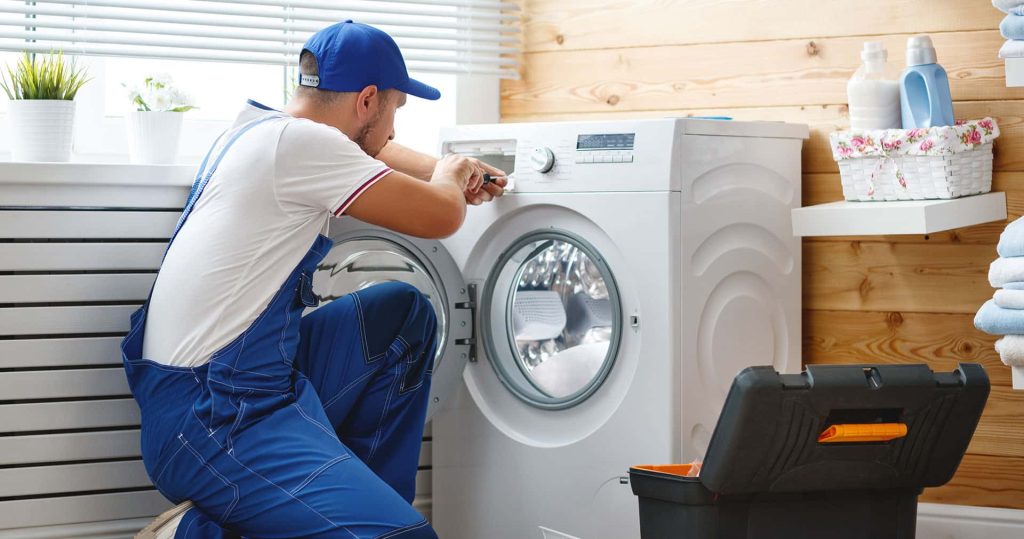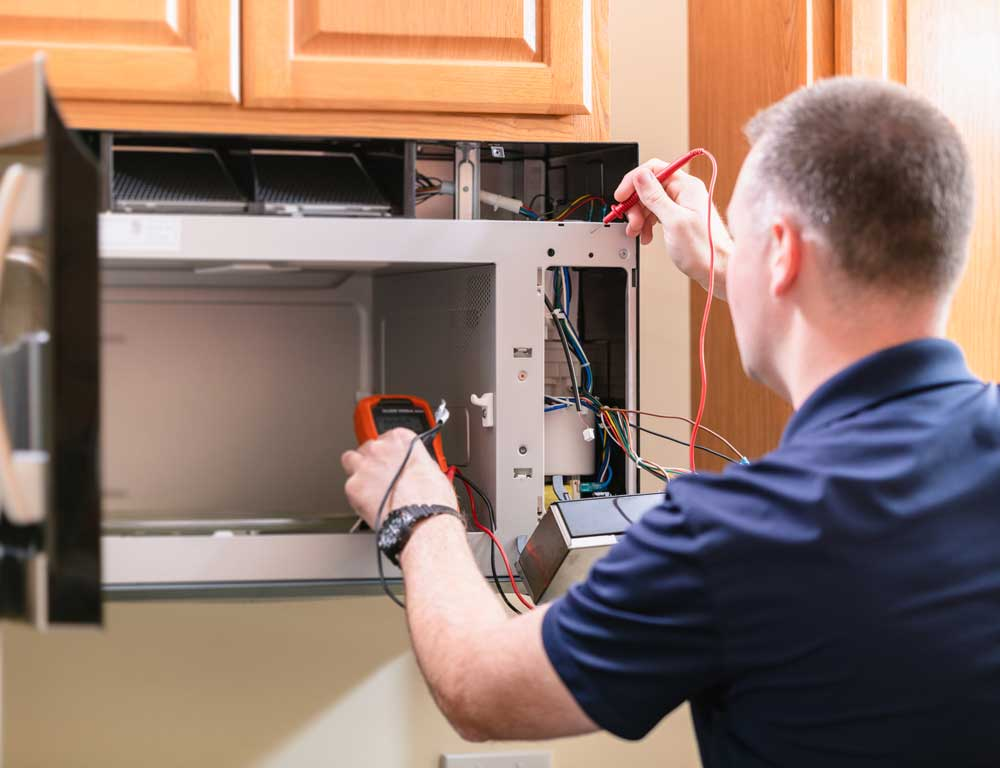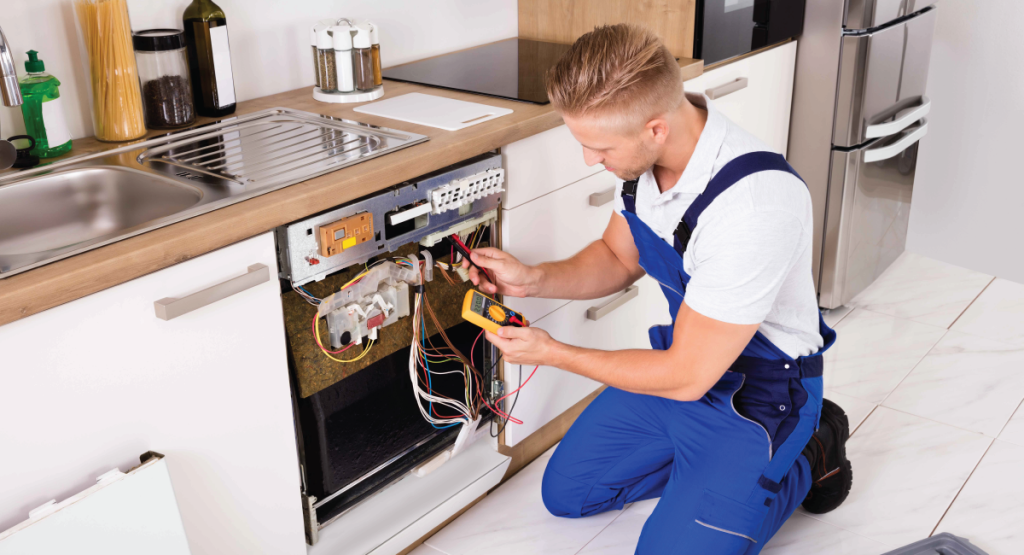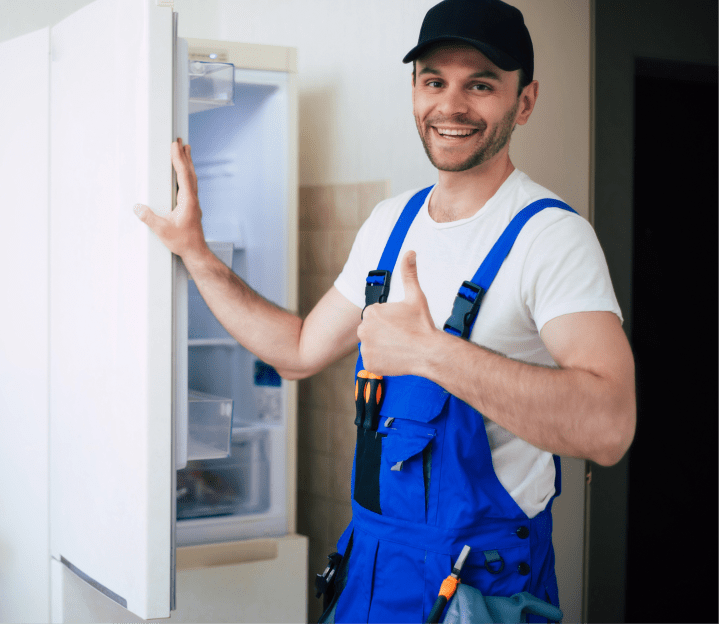Appliance Repair Technician
Gain the knowledge and hands on skills to repair appliances across laundry, kitchen and refrigeration systems. This comprehensive program covers electrical fundamentals, gas systems, cooling systems, washers, dryers, ovens, stoves, dishwashers and includes industry recognized certifications.

8 weeks
Program length
15–20 hours
Estimated weekly effort
$40,000
Average starting salary (estimated)
3%
Projected job growth (10 years, estimated)
8,000
Entry-level job openings (US, estimated)
Why Choose a Tech Sales Career?
Discover if you have the right mindset — and why becoming a Sales Development Representative (SDR) in tech is one of the best ways to launch a high-earning, fast-growth career in the digital economy.
Ideal Personality
You are a Communicator: You enjoy talking to people, understanding their needs, and helping them find the right solution. You’re self-motivated, confident, persistent, and comfortable with targets and performance goals.
What the Work Is Like
You’ll be on the front lines of sales — researching potential clients, making outreach calls or emails, and qualifying leads for account executives.
Job Security
High and Growing. The tech industry continues to expand, and companies always need skilled SDRs to drive pipeline and revenue. Even during market shifts, sales professionals remain essential to business growth.
Bonus Benefits
Many companies offer uncapped commissions, career advancement into Account Executive or Sales Manager roles, and remote flexibility.
It’s a career where your communication skills directly impact your income and long-term growth potential.
Program overview
This Appliance Repair course provides foundational training for those seeking to become appliance repair technicians. Through a series of hands‑on modules you’ll learn electrical and gas fundamentals, refrigeration cycles, and repair techniques for washers, dryers, ovens, stoves, microwaves, dishwashers and garbage disposals. Safety, ethics and customer service are emphasized throughout the program.
What does an Appliance Repair Technician do?
Appliance Repair Technicians diagnose, service and repair household appliances such as refrigerators, freezers, washers, dryers, dishwashers, ovens, stoves and microwaves. They troubleshoot mechanical, electrical and gas related problems, replace faulty components, perform routine maintenance, handle refrigerants and ensure repairs comply with safety codes. Technicians interact with customers, provide estimates, maintain accurate service records and deliver courteous service.
- Diagnose and repair a wide range of household appliances.
- Understand electrical circuits, gas systems and refrigeration principles.
- Use multimeters and other diagnostic tools to identify faults.
- Replace or repair faulty components such as motors, heating elements, compressors and valves.
- Educate customers on safe operation and maintenance of appliances and practice exceptional customer service.

Certifications earned / eligible for
- OSHA 10 Hour General Industry Safety Certification.
- EPA Section 608 Type 1 (for sealed system appliances) and EPA Section 608 Universal Certification.
- Optional: Certified Appliance Professional (CAP) certification through the United Appliance Servicers Association (not included in program fee).
- Optional: National Appliance Service Technician Certification (NASTeC) (not included in program fee).
Career opportunities summary
Graduates may pursue roles such as Appliance Repair Technician, Appliance Service Technician, Maintenance Technician, Field Service Technician or Service Manager for appliance repair companies, warranty service providers and self employment.
Program details
Program structure overview: The course consists of nine modules combining theory with hands‑on practice. Hours are approximate.

Structure & Curriculum
Module 1 - Introduction to the Appliance Repair Industry (12–14 hours)
Overview of careers, tools and equipment, safety practices, OSHA guidelines, ethical repair practices and customer service.
Module 2 - Electrical Fundamentals for Appliance Repair (8–12 hours)
Basic electrical theory and circuits, multimeter use, electrical testing, troubleshooting and lockout/tagout procedures.
Module 3 - Gas Appliance Systems and Safety (5–8 hours)
Understanding gas systems, leak detection, gas line installation and code compliance; prepares for EPA Section 608 Type 1 certification.
Module 4 - Refrigeration and Cooling Systems (20–30 hours)
Refrigeration cycle basics; compressor, condenser and evaporator functions; diagnosing cooling issues and handling refrigerants; prepares for EPA Section 608 Universal certification.
Module 5 - Laundry Appliances – Washers & Dryers (15 hours)
Types and components of washers; dryer heating elements and ventilation; diagnosing and repairing common washer and dryer issues.
Module 6 - Kitchen Appliances – Ovens, Stoves and Microwaves (15–20 hours)
Range types (gas vs. electric); microwave magnetrons and control boards; oven calibration and repair techniques.
Module 7 - Dishwashers and Garbage Disposals (10 hours)
Water inlet valves and drainage systems; diagnosing cleaning and drainage problems; pump and motor repairs.
Module 8 - Hands On Training and Simulations (15–20 hours)
Workshop labs for hands on repair practice; troubleshooting exercises on common appliances; repair competency assessments.
Module 9 - Final Assessment and Certification Prep (4–12 hours)
Comprehensive final examination, mock certification tests, resume and interview coaching; certifications awarded upon completion.
Total program duration: Approximately 120 hours (~8 weeks)

Exam eligibility note
Completion qualifies students to receive OSHA 10 Hour certification and EPA Section 608 certifications; optional CAP and NASTeC exams are available but not included in the program fee.
AMA collaboration
Not applicable.
Enrollment requirements
- High school diploma or GED.
- Mechanical aptitude and comfort using tools.
- Ability to lift and move appliances and stand for extended periods.
- Reliable internet connection for online coursework and access to a workshop or lab for hands on practice.
Covered materials included with training
- Video based training and instructional materials.
- Equipment lists and safety gear recommendations.
- eBooks and repair manuals for major appliance brands.
- OSHA 10 and EPA Section 608 exam fees (included).
Student services / supports
- Support from instructors during hands on labs and online modules.
- Career services including resume assistance, interview coaching and job search guidance.
- Access to alumni network and industry partners.
Career Outlook
Appliance repair technicians are needed to maintain and repair household appliances; demand remains steady as consumers prefer repairing existing appliances over replacing them.
Job roles & salary ranges
Appliance Repair Technician
$30,000–$50,000
Appliance Service Technician
$32,000–$55,000
Maintenance Technician
$28,000–$45,000
Data sources note: Salary estimates are based on national averages; Alabama wages may fall slightly below national levels.
8,000
Entry-level job openings (US, estimated)
3%
Projected 10-year growth (estimated)
$40,000
Average starting salary (estimated)
Funding & grants
Funding may be available through workforce grants, employer reimbursement or military spouse programs.
Funding options listed
- Workforce Innovation and Opportunity Act (WIOA) grants.
- MyCAA for eligible military spouses.
- Employer tuition assistance or reimbursement for technicians currently employed in maintenance roles.
Military spouse grants note
MyCAA may provide up to $4,000 in assistance for qualifying spouses.
Military spouse grants note
Partnerships with local American Job Centers may provide funding and job placement assistance.
Call to action for funding
Speak with an admissions advisor to explore funding eligibility and payment options.
Frequently Asked Questions
You’ll learn electrical and gas fundamentals, refrigeration principles, diagnostics and repair techniques for washers, dryers, ovens, stoves, microwaves, dishwashers and garbage disposals, as well as customer service and safety procedures.
OSHA 10‑Hour General Industry Safety and EPA Section 608 certifications are included; optional CAP and NASTeC certifications are available but not included in tuition.
No, the program is designed for beginners. However, mechanical aptitude and comfort using tools are helpful.
The course consists of approximately 120 hours of training and can typically be completed in about 8 weeks if you devote 15–20 hours per week.
Yes. The program includes hands‑on labs and simulations where you’ll practice diagnosing and repairing appliances.
Disclaimers & legal notes
Course hours and content are approximate and may vary. Program curricula and certifications are subject to change and may differ by provider. Students should research licensing requirements in their state and verify that certifications meet local regulations.
